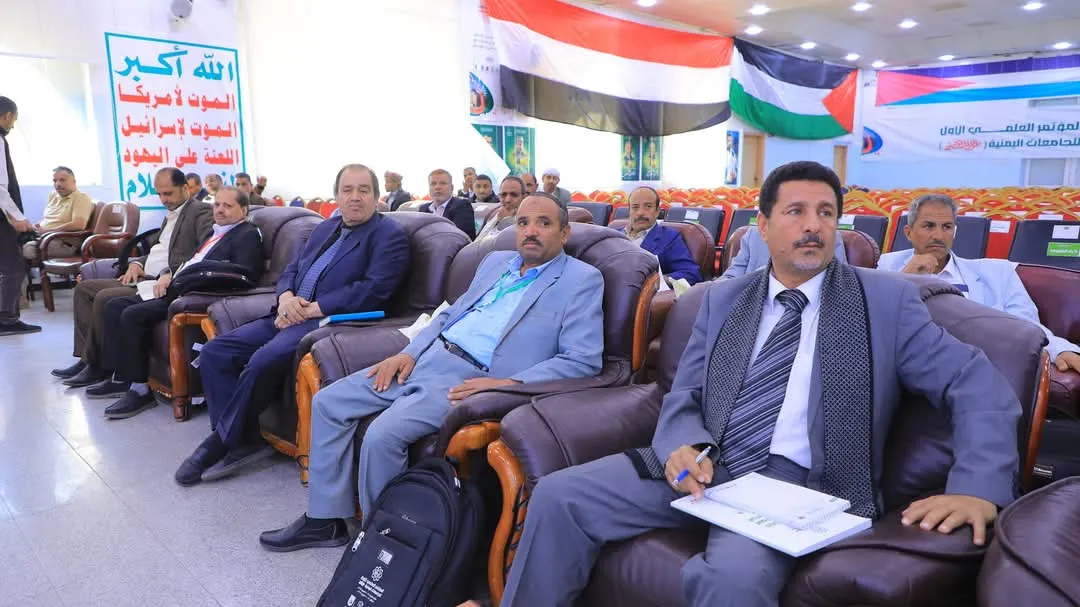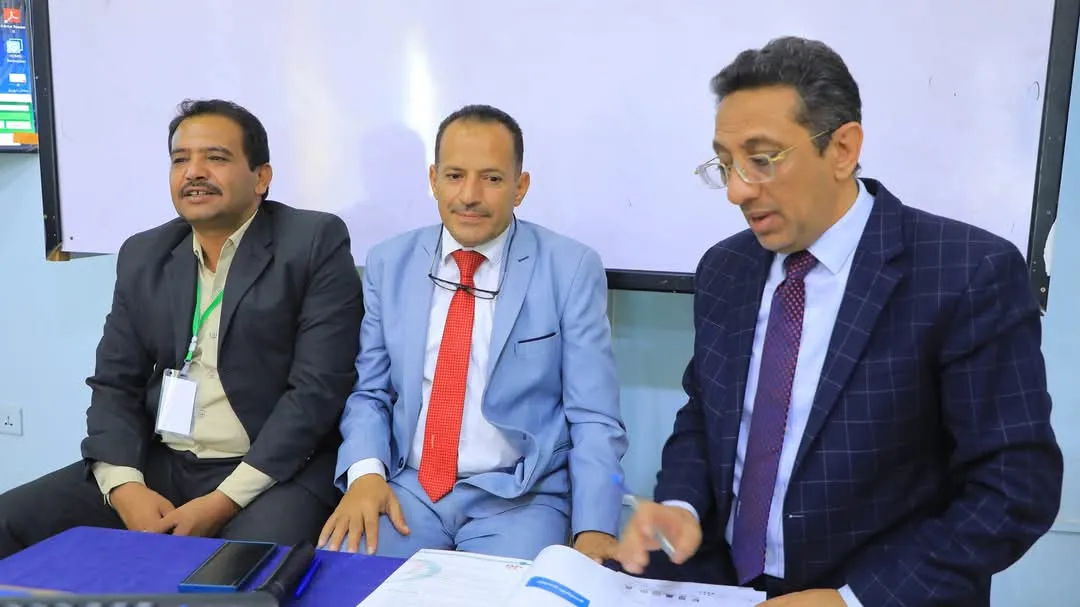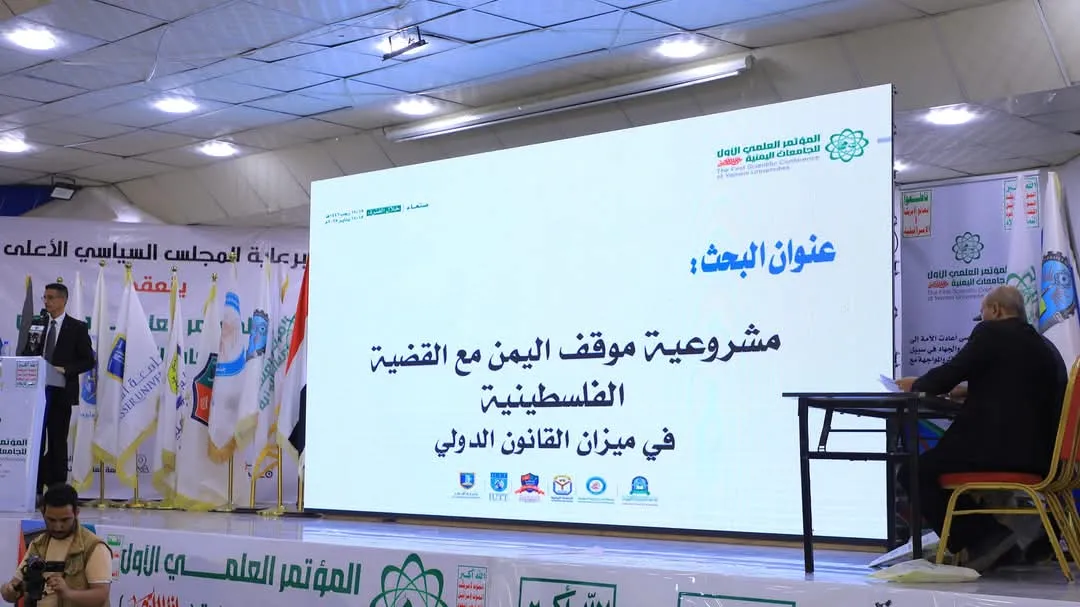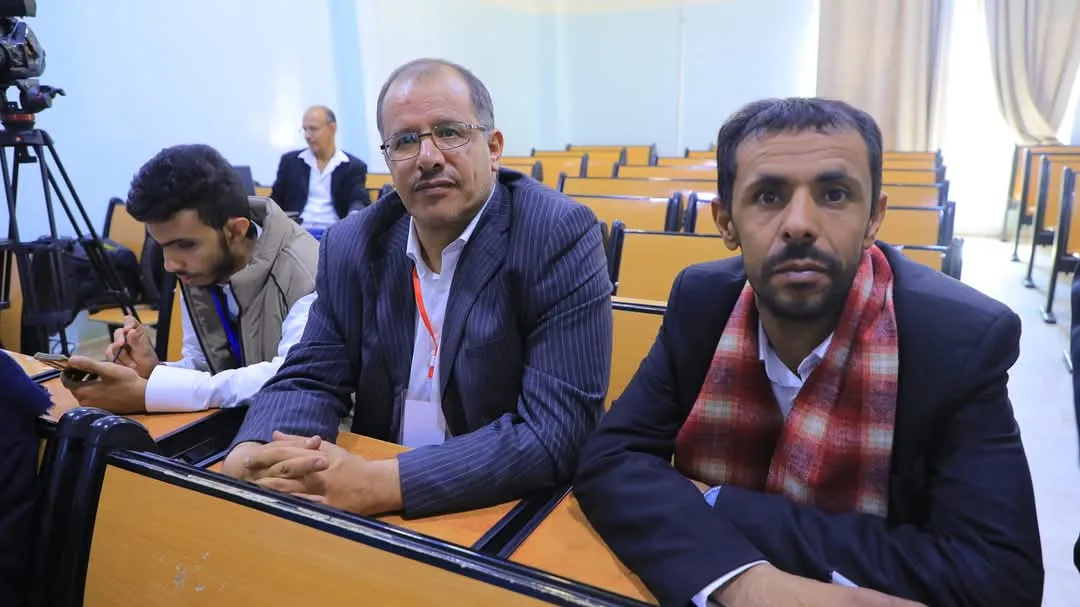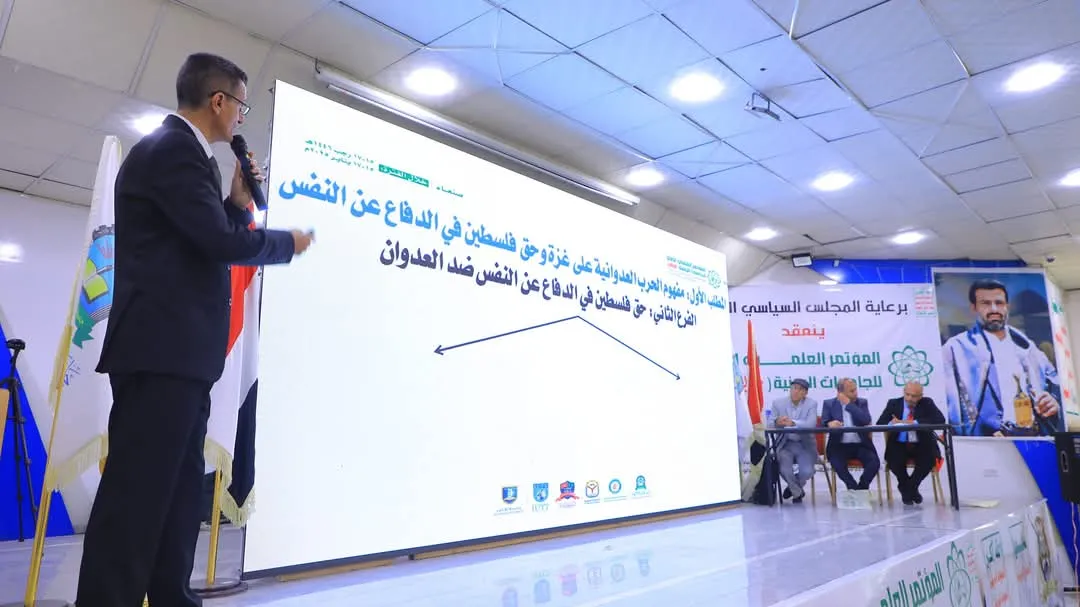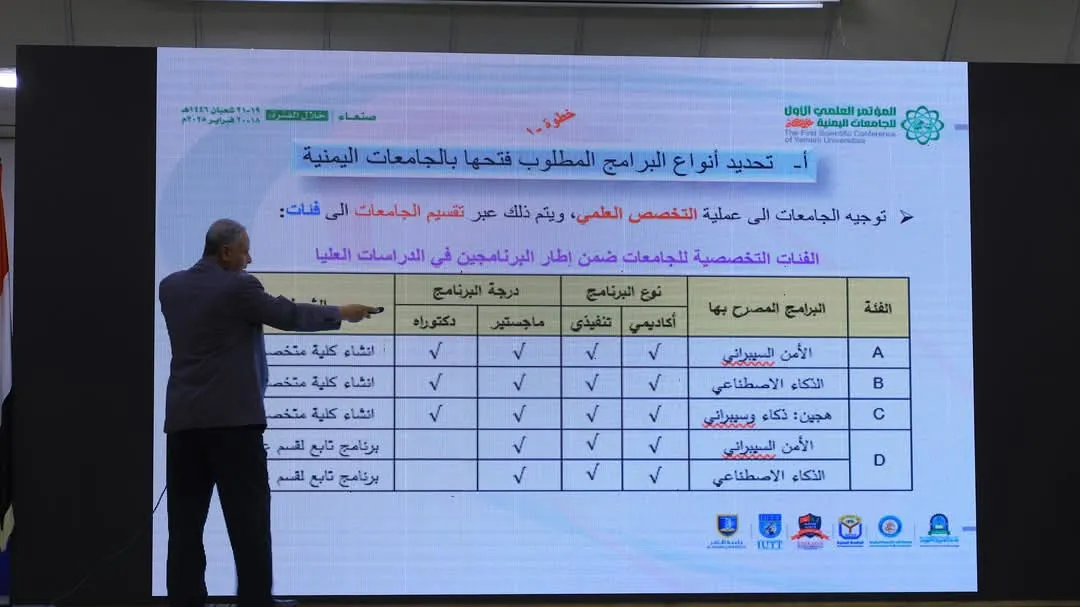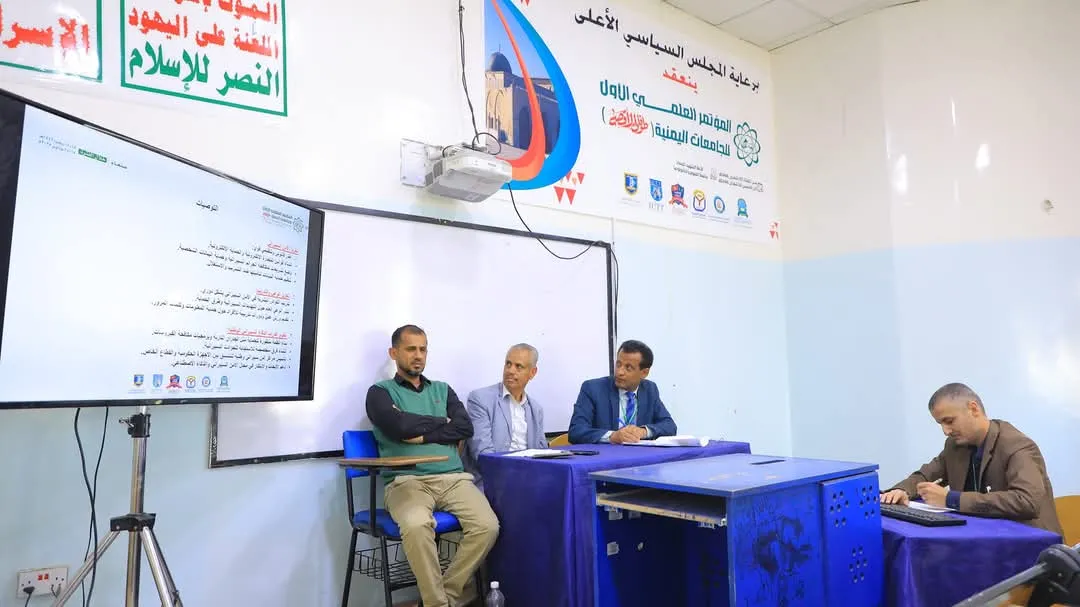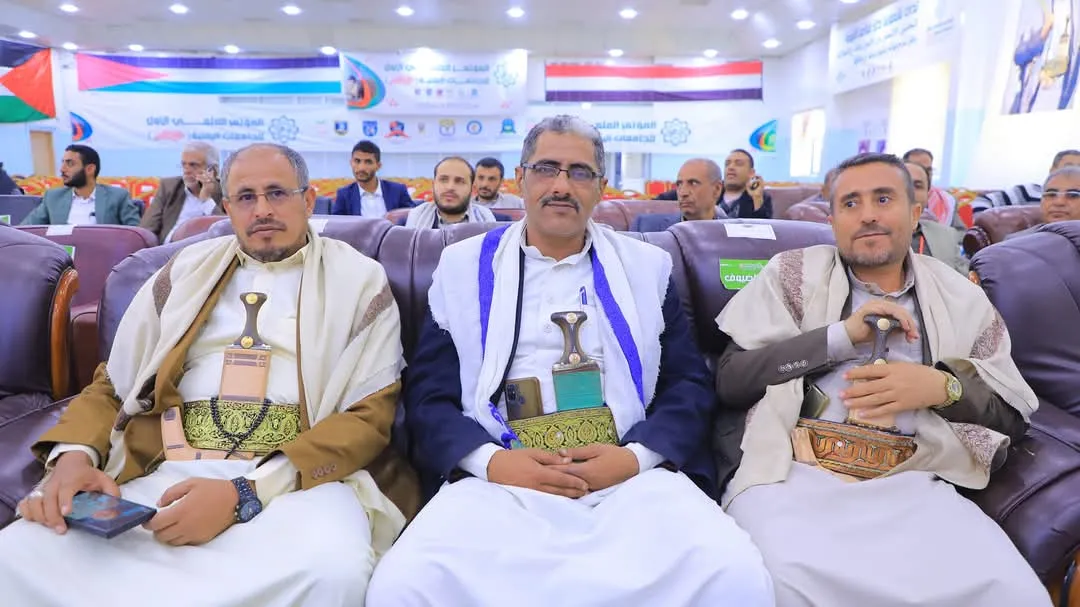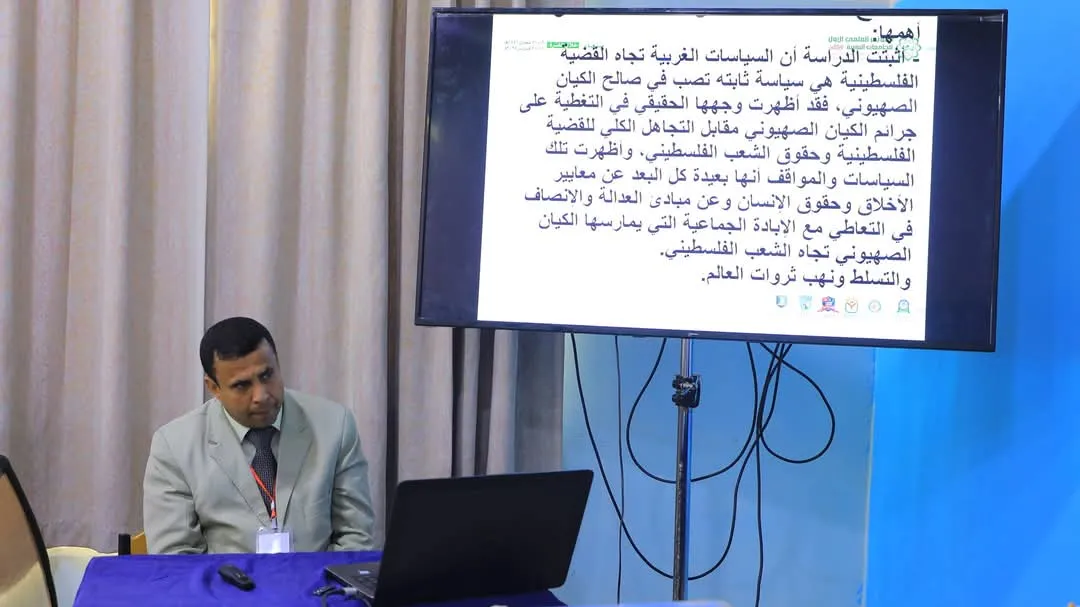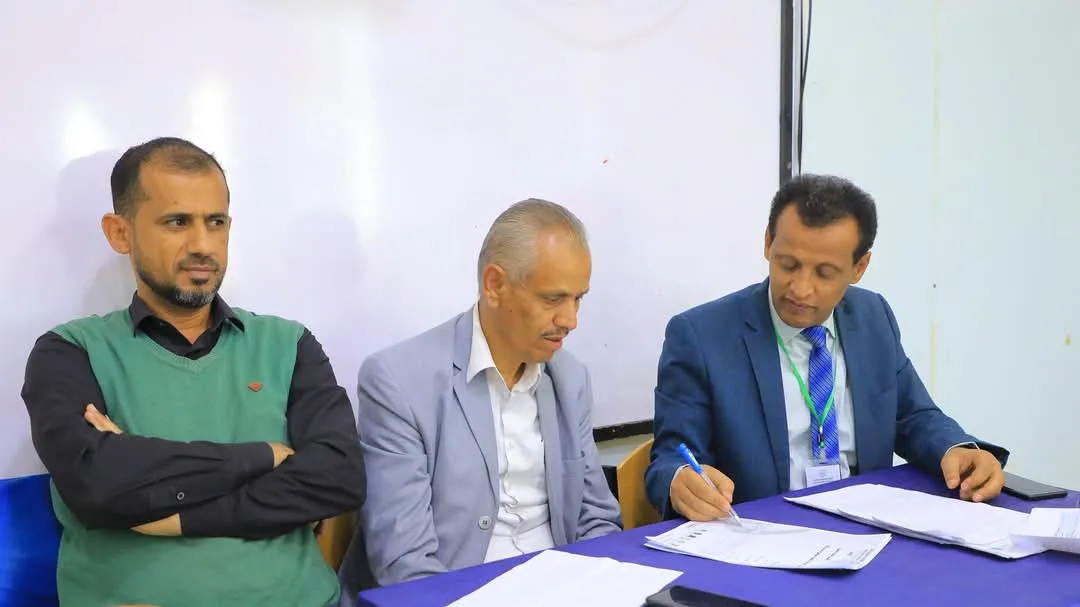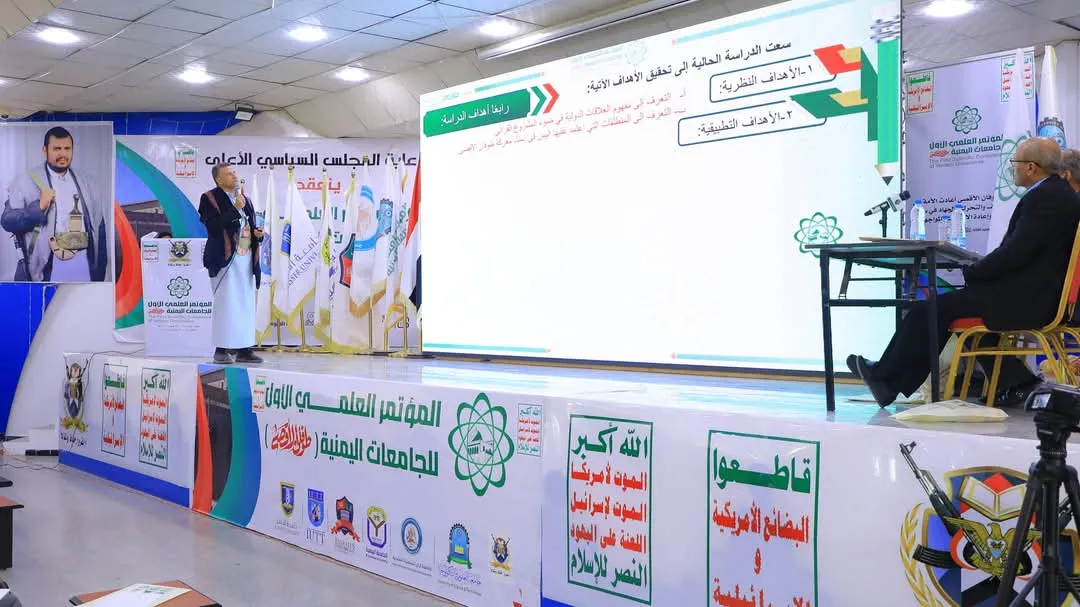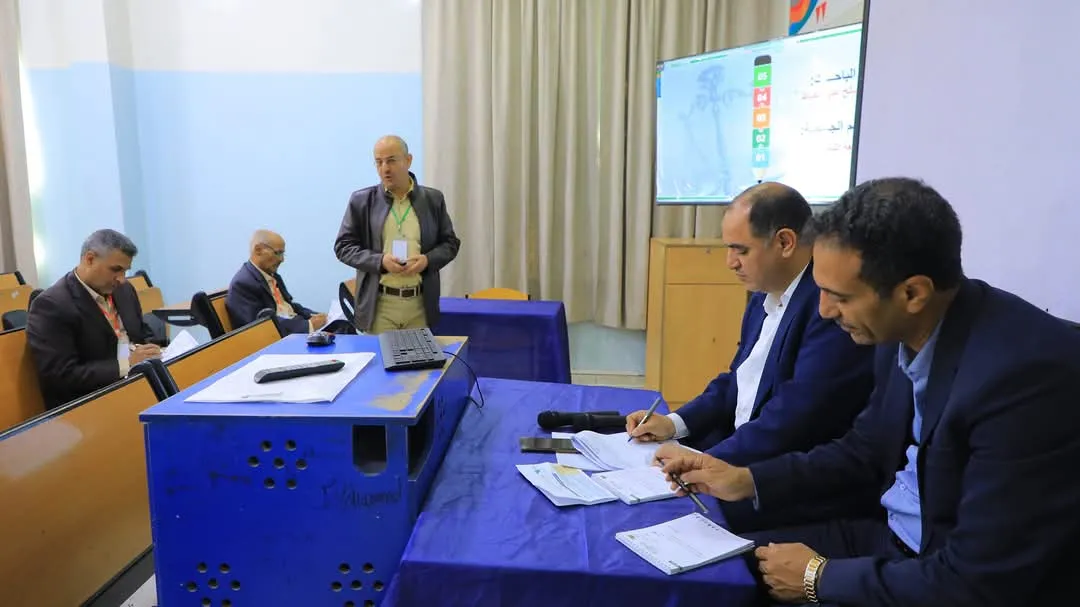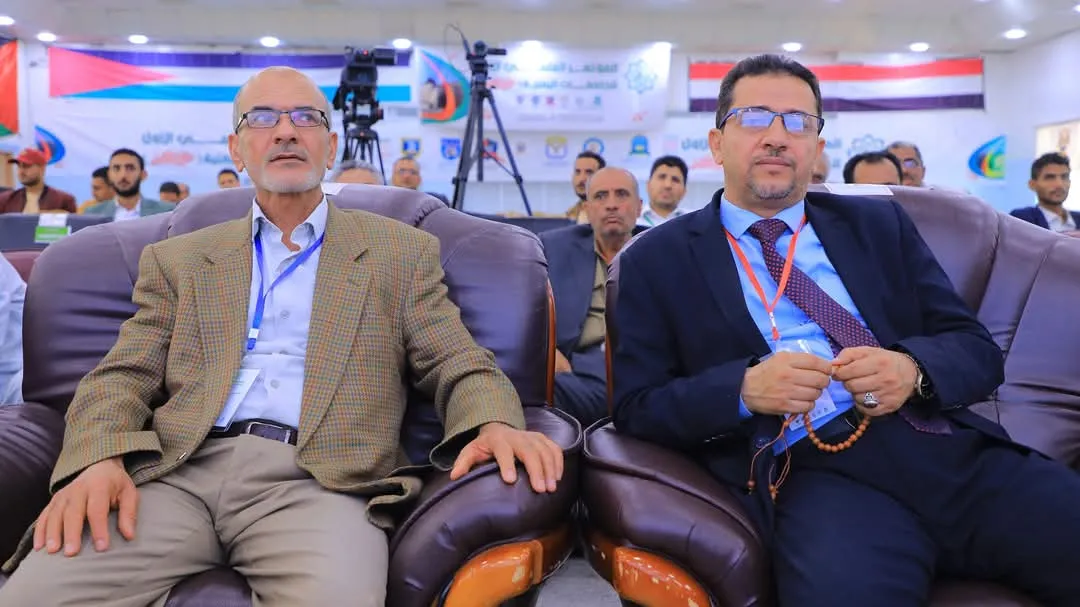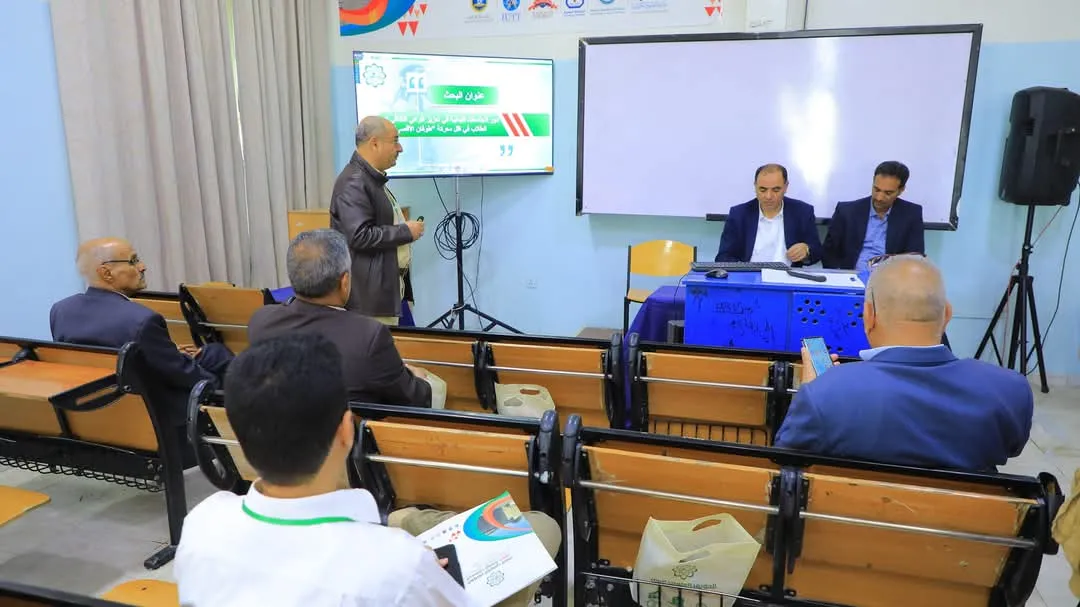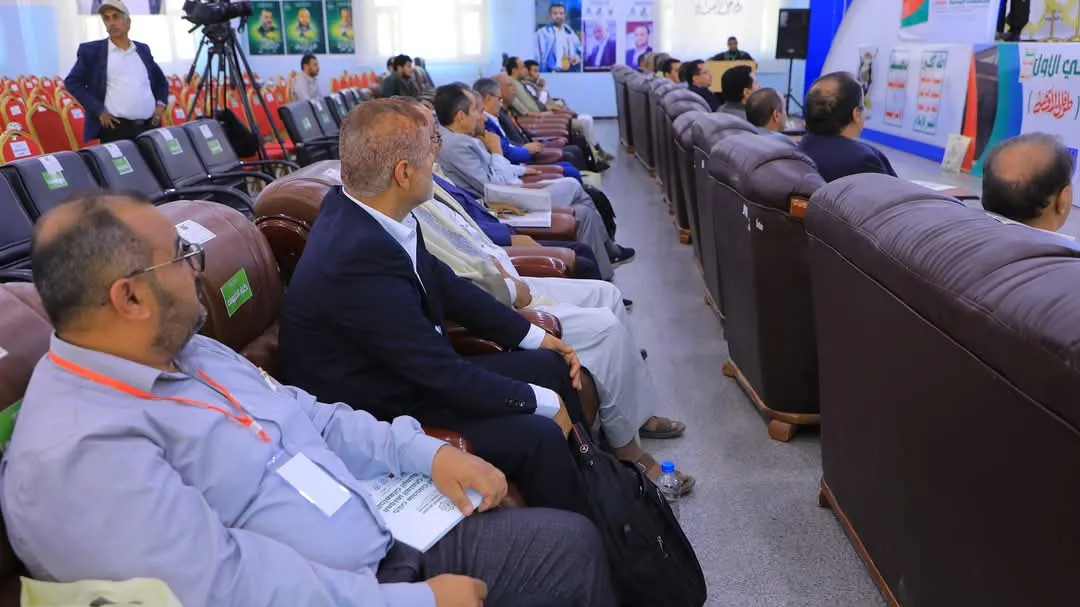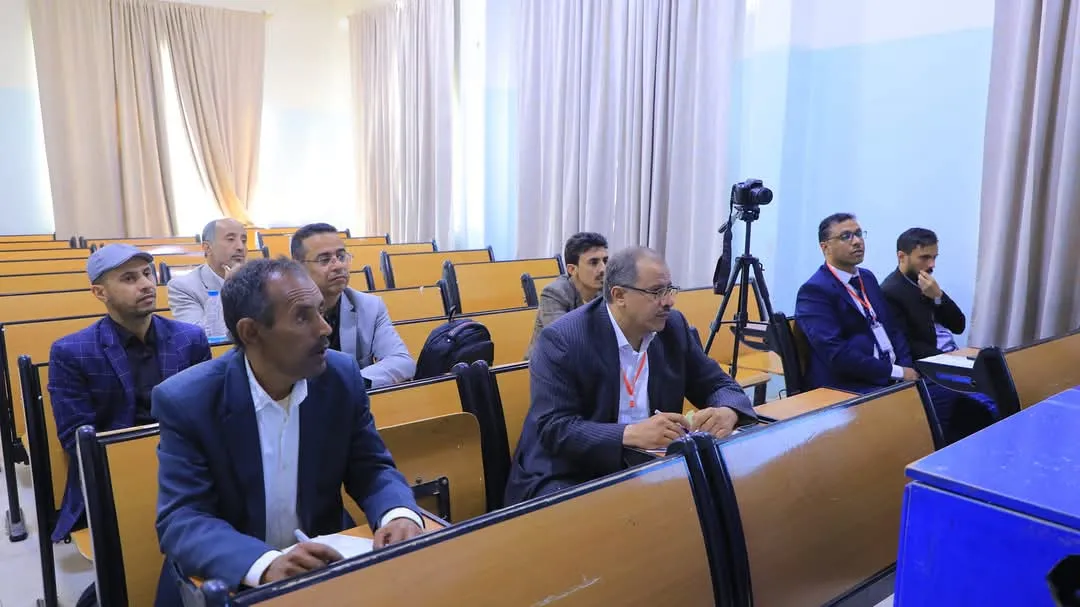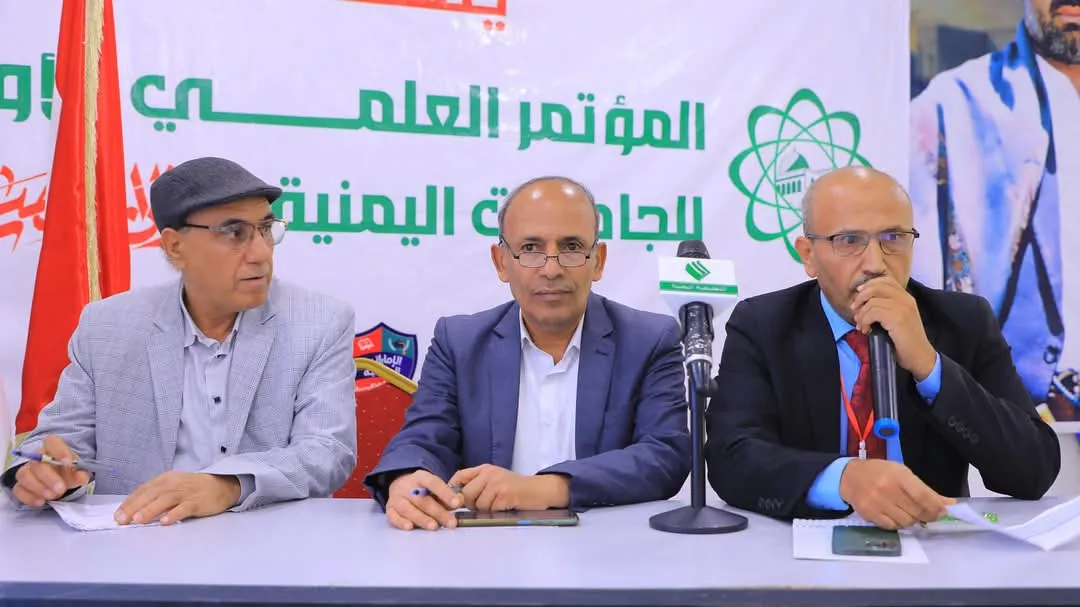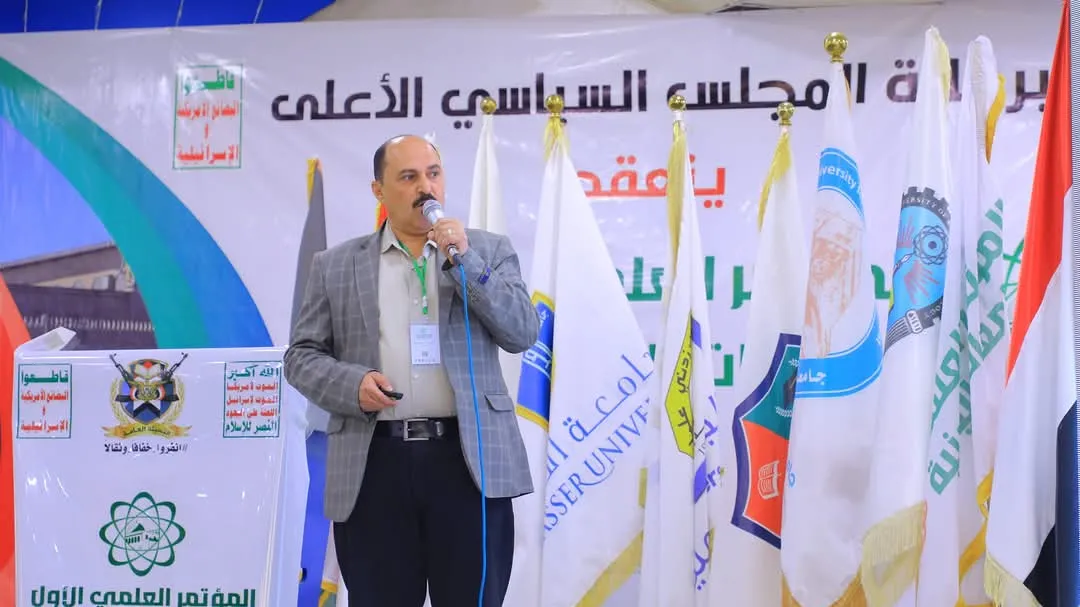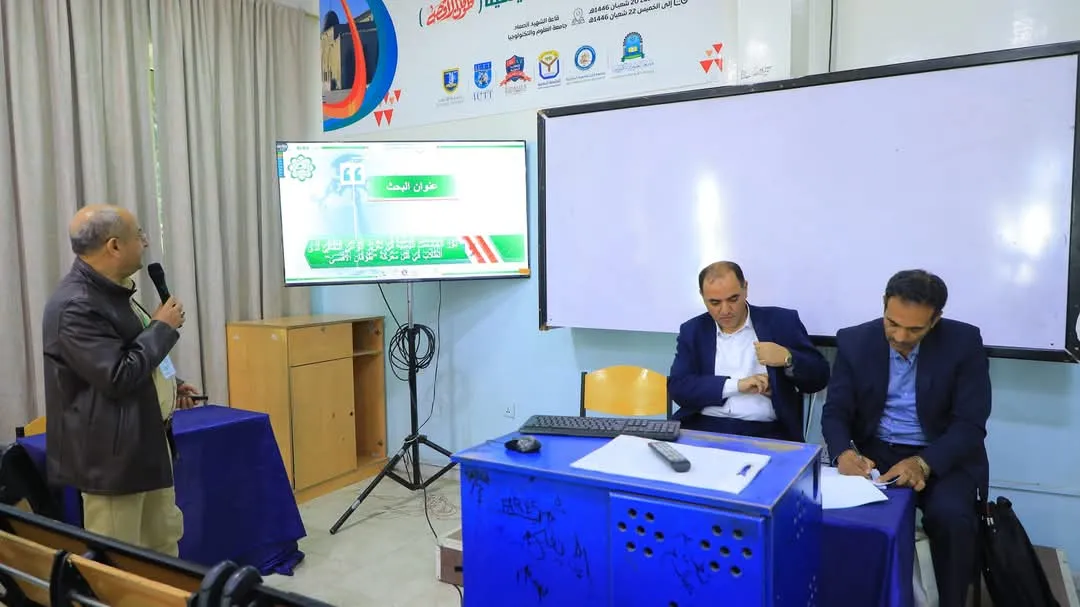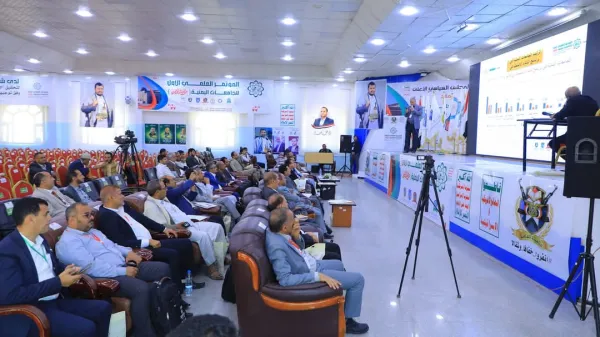
The First Scientific Conference of Yemeni Universities "T.. and Fan Al-A.. Qasi" Discusses 55 Research Papers on Its Second Day
Wednesday, Sha'ban 21, 1446 AH corresponding to February 19, 2025 at 20:29:16
Sana'a - Saba:
The work of the First Scientific Conference of Yemeni Universities "T.. and Fan Al-A.. Qasi", which is organized over three days by six private universities with local and international participation, continued in the capital, Sana'a, today.
The conference discussed on its second day 55 scientific research papers and working papers through 11 parallel working sessions, where during the first session headed by Dr. Abdul Wahab Al-Washli and Dr. Jamal Dirham, five research papers were discussed, the first of which was on the legitimacy of Yemen's position on the Palestinian issue in the balance of international law presented by Dr. Nabil Abu Hadi, the negative roles of the international community and its organizations in the Al-Aqsa Flood operation by Dr. Ali Al-Ashwal, and the role of South Africa in confronting the Zionist criminality versus Arab inaction by Dr. Abdullah Maqbool. The fourth paper shed light on the dimensions and implications of the major powers' support for the Zionist enemy in the Al-Aqsa Flood battle by Dr. Fahd Al-Wazzaf, and in the fifth paper, Dr. Fadl Ba'alawi reviewed a proposal to establish postgraduate programs in the field of cybersecurity and artificial intelligence in Yemeni universities. The second session, chaired by Dr. Muhammad Al-Aqili, included five research papers. The first was entitled “The Flood of Al-Aqsa and the Yemeni Strategic Role in Supporting the Battle” by Dr. Khaled Al-Shami. The second presented a proposed vision to activate the roles of faculty members at Yemeni universities in achieving community awareness of the importance of the Battle of the Flood of Al-Aqsa, presented by Dr. Ali Qaradha. In the third session, Dr. Sadiq Al-Tawil presented a proposal for research projects to address the technical and informational imbalances that accompanied the Flood of Al-Aqsa. In the fourth session, Dr. Nayef Al-Abrath addressed the goals of the Zionist occupation in destroying educational institutions in Palestine, in addition to a paper by Dr. Sufyan Al-Azab on establishing postgraduate programs in the field of cybersecurity and artificial intelligence. The third session, chaired by Dr. Farhan Hashem, reviewed five scientific papers. The first was entitled “The Role of Yemen in the Economic Siege of the Zionist Entity in the Battle of the Flood of Al-Aqsa - Bab al-Mandab Strait as a Model” by Dr. Abdullah Al-Shami. The second addressed the role of the Battle of the Flood of Al-Aqsa in exposing the regimes and political forces supporting Israel by Dr. Ahmed Al-Shami. The third reviewed the role of the Flood of Al-Aqsa in thwarting the policy of normalization with the Arab client regimes by Dr. Fahmi Qasim. The fourth, by Dr. Muhammad Al-Qawsi, focused on the political axis of the Battle of the Flood of Al-Aqsa in returning the Palestinian cause to the forefront of international issues, while Dhaif Allah Al-Shami presented a fifth paper entitled “The Role of Yemeni Politics in Supporting and Assisting the Palestinian Resistance - Operation Flood of Al-Aqsa as a Model.”
In the fourth session, five research papers were presented. The first focused on the development of the political positions of Western governments towards the Palestinian cause following the Al-Aqsa Flood - an analytical study by Dr. Abdullah Habish. Dr. Jabr Al-Sanabani presented a paper entitled "The Role of the Battle of the Al-Aqsa Flood in Foiling the Normalization Project." In the third paper, Dr. Farhan Hashem addressed the role of the Al-Aqsa Flood and its effects on the future of the Zionist enemy entity. In the fourth paper, Dr. Hamid Al-Shammari addressed the political repercussions of the Al-Aqsa Flood during the year of the battle. Dr. Yahya Al-Marani presented the fifth paper on the role of the Al-Aqsa Flood and its effects on the normalization of Arab regimes with the Zionist entity. The fifth session, chaired by Dr. Abdul Malik Issa, was devoted to discussing five research papers. The first was about the consequences of the nation abandoning the culture of jihad by Dr. Mukhtar Al-Yousfi. The second was about the effectiveness of the Quranic project in directing the compass of hostility towards the American and Israeli enemy and achieving victory in the Battle of the Flood of Al-Aqsa by Dr. Muhammad Taqi. In the third session, Dr. Ahmed Al-Jumaili addressed the role of the Battle of the Flood of Al-Aqsa in overthrowing sectarian and religious strife. Dr. Khaled Al-Shammari presented a paper on the role of Yemeni universities in building cultural awareness among students within the Battle of the Flood of Al-Aqsa, using the UAE University as a model. In the fifth paper, Dr. Jamil Rashid addressed the impact of artificial intelligence on cybersecurity. The sixth session, chaired by Dr. Saleh Al-Dhaheri, reviewed five scientific papers. The first was presented by Dr. Walid Ghilan on the targeting of health workers in Gaza by the Israeli enemy in the Battle of the Flood of Al-Aqsa. The second was presented by Dr. Masoud Raqi on the catastrophic effects of the Israeli enemy targeting the health sector. The third was presented by Dr. Muhammad Al-Buraihi on the role of the health sector in Gaza in supporting the Battle of the Flood of Al-Aqsa. The fourth was presented by Dr. Sadiq Manaa on Operation Flood of Al-Aqsa in confronting the occupation’s wars on the Gaza Strip, its context, circumstances and major results. In the fifth session, Abdul Wali Al-Shamiri addressed the role of America, the biggest partner in all the crimes of the Zionist enemy for more than half a century - an analytical study. The seventh session, chaired by Dr. Ali Sharaf Al-Din, witnessed the discussion of five research papers. The first was by Dr. Abdul Hakim Al-Hijri on Islamic unity in the thought of the martyr leader to confront the enemies of the nation. The second was by Dr. Abdul Salam Al-Salami on evidence of the demise of the Zionist entity from religious, historical and universal constants. The third was by Dr. Fahd Al-Khayat entitled “The role of Yemeni universities in enhancing cultural awareness among students in the Battle of the Flood of Al-Aqsa - a critical analytical study.” The fourth was by Abdul Razzaq Sand on “The secret of the steadfastness of the mujahideen in Gaza and its relationship to the faith aspect.” The fifth was by Dr. Jamil Al-Kahlani on “The faith identity as a starting point for confronting the enemies of the nation - the Yemeni position as a model.”

